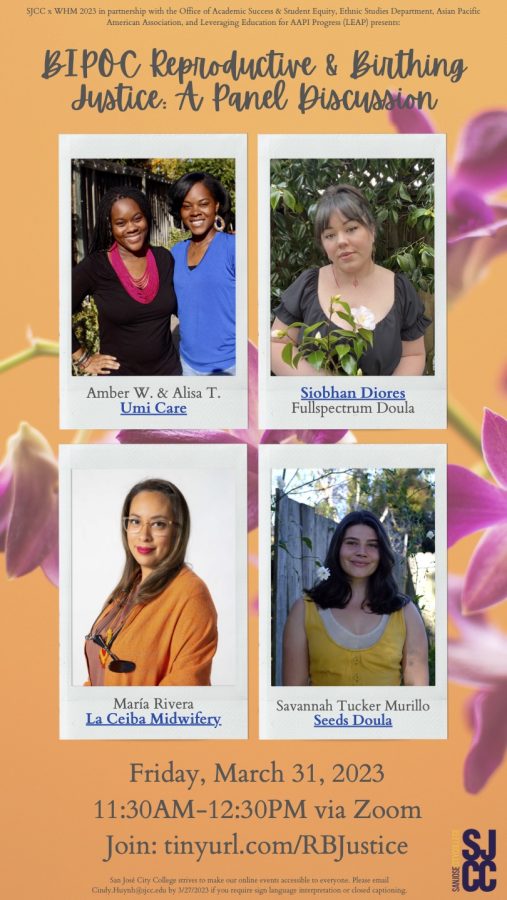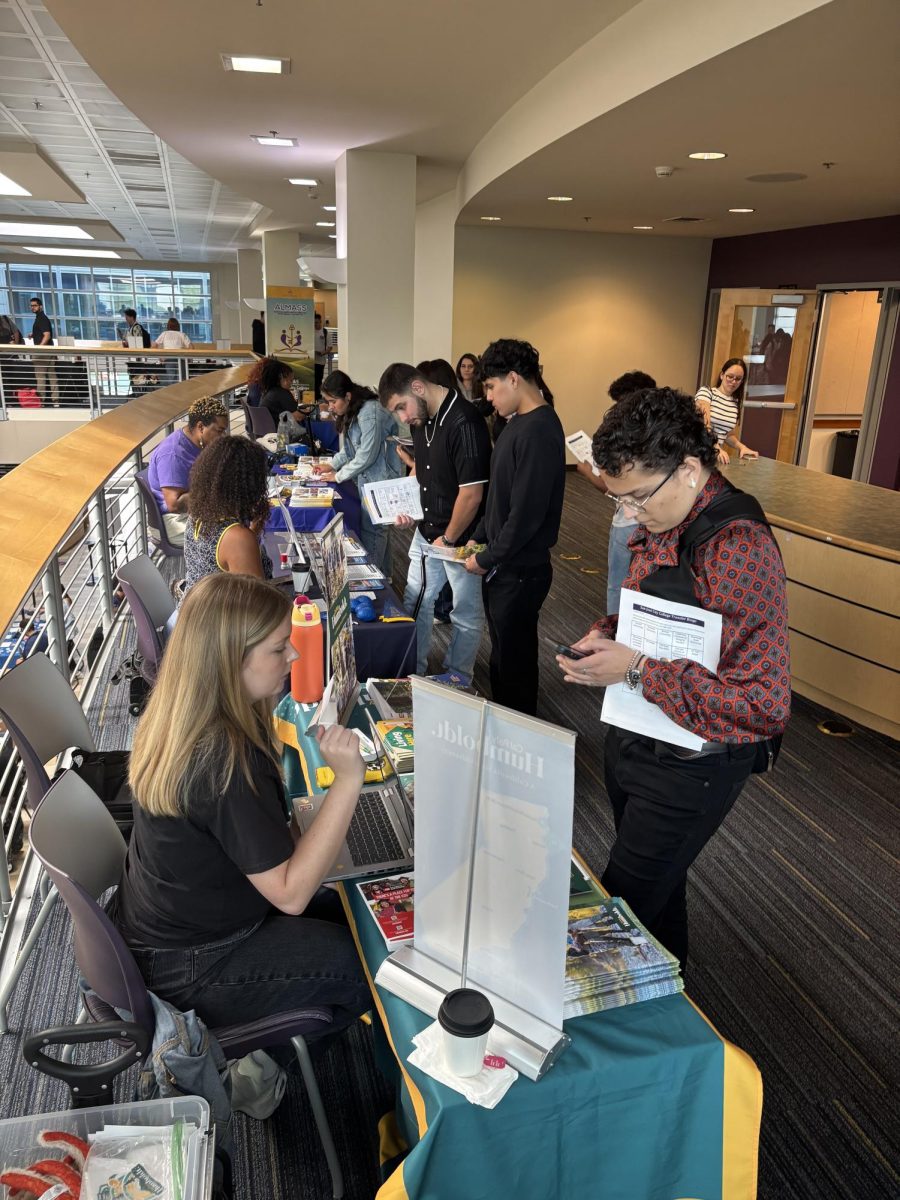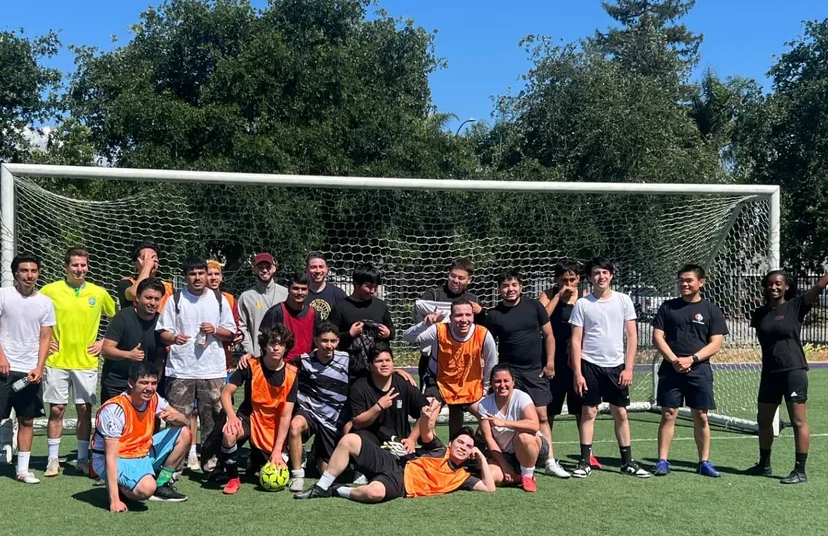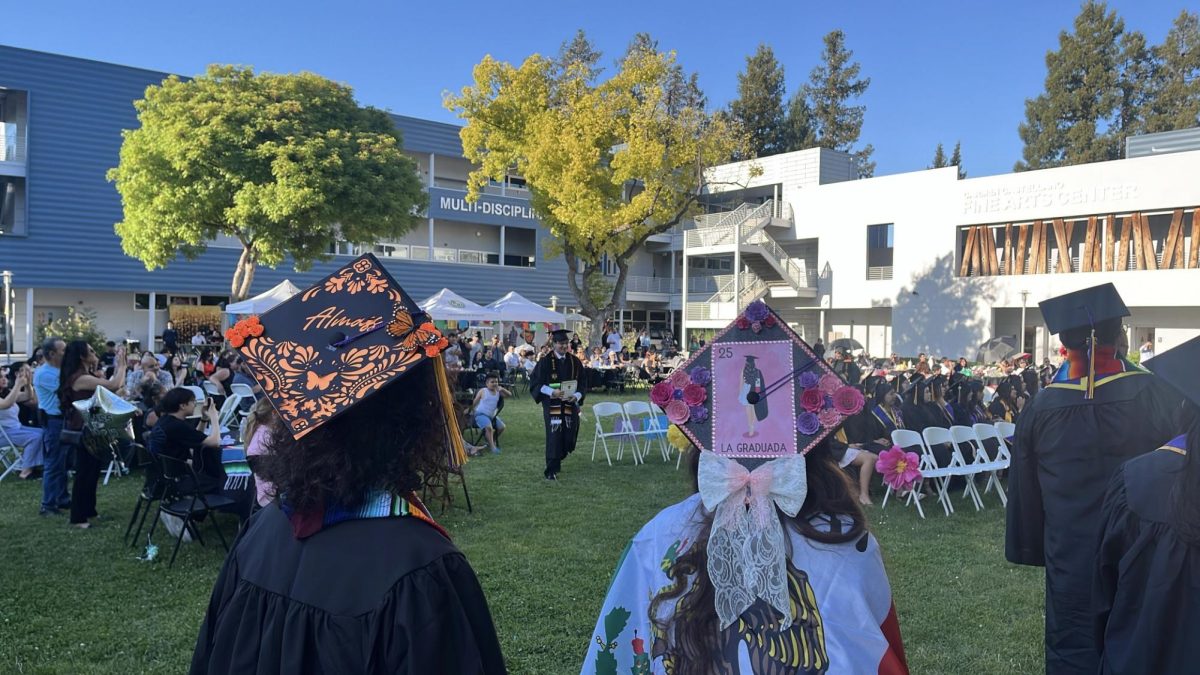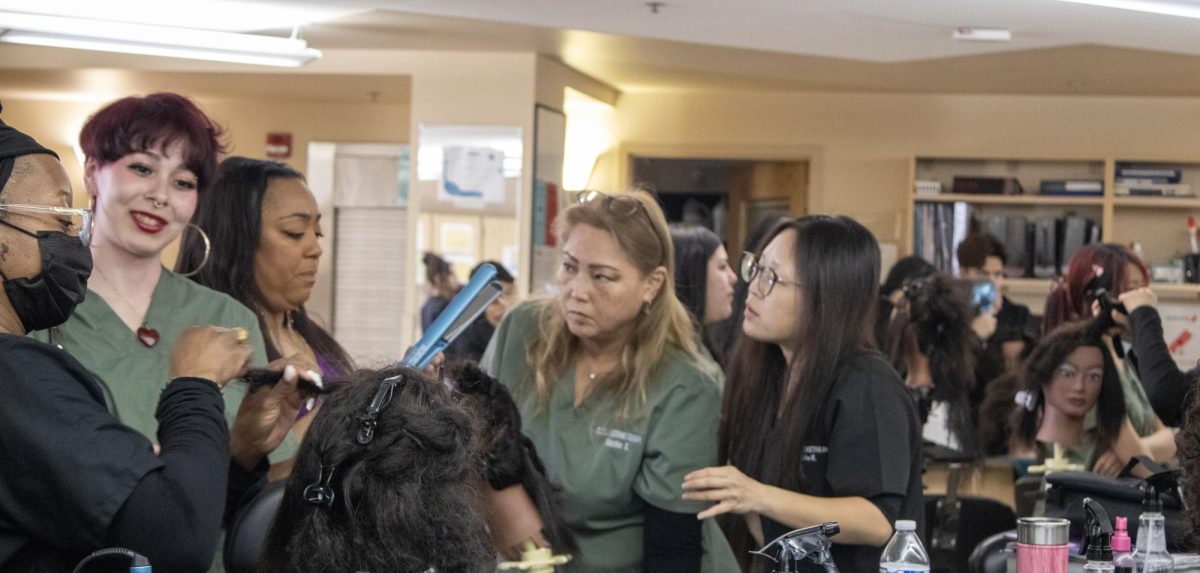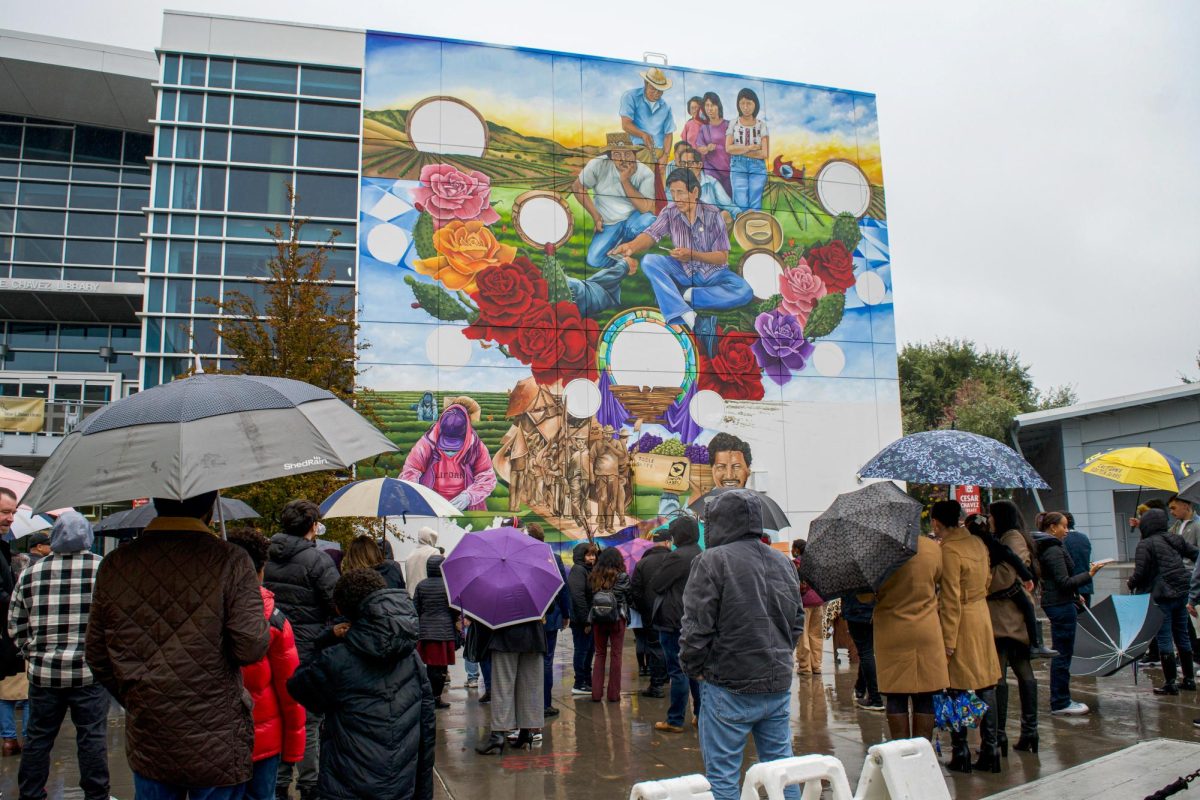Access to equitable healthcare coverage for communities of color, compounded by a historic mistrust of the medical system, were among some of the topics that were discussed at San Jose City College during a Women’s History Month panel in March.
Dr. Cindy Huynh, an ethnic studies instructor at SJCC, hosted a panel of experts via Zoom on March 31 featuring topics on reproductive and birthing justice for people of color, including Black, Indigenous and Latino communities, among others.
This topic for discussion comes at a time where reproductive rights are being challenged across the nation. Less than a year ago, the Supreme Court voted to overturn Roe v. Wade, a nearly five-decade law that protected a person’s Constitutional right to pursue an abortion.
Specialist Amber Whiley explained to the SJCC community what reproductive justice is and why it’s an important topic to address.
“It means allowing all members of society to make the choices how they want to reproduce without judgment or shame, then providing them the support to do that,” said Whiley, co-founder of the Santa Clara county-based prenatal and postpartum service Umi Care.
Other guest speakers included Alisa Thomas, Siobhan Diores and Maria Rivera who answered questions surrounding reproductive justice in BIPOC communities.
They spoke to the importance of prenatal and postpartum care with vulnerable groups. Prenatal care is focused on the pregnancy journey before and during, whereas postpartum is after the birth of a baby. People could struggle with the absence of carrying their child, which in turn could trigger symptoms such as anxiety and depression, among others, according to Umi Care.
“It is about advocacy and being the voice to the voiceless,” said Thomas, co-founder of Umi Care. She explained that women should be aware of all of their options, but this is what most BIPOC communities often lack.
Maria Rivera, a midwife on behalf of La Ceiba Midwifery, said another common experience people deal with is abuse in the medical industry. A midwife is an advocate for the person giving birth, and typically assists in the birth itself as well as other medical needs, according to La Ceiba Midwifery.
Rivera spoke about the negligence people in postpartum care encounter and who it affects when choosing the conventional route of birth.
“The ones who are mostly impacted by the medical industrial complex are people of color,” Rivera said, adding that appearance is a big factor as to why only some people receive certain care.
Wiley added that reproductive justice is mostly about the people giving birth.
“Having their birth plans honored, having their wishes honored, giving all the information they need to make the choice that is right for them,” she said.
Though doulas, also known as emotional support coaches, and traditional western medical care differ in cultural perspectives, the panelists made it known that they often partner with clinics and community organizations to provide extra care for their clients.
“This work, this direct care, this improved outcome has the power to really change the whole world,” said Diores, who works as a doula. “I really think it could ripple to change the whole fabric of society.”

